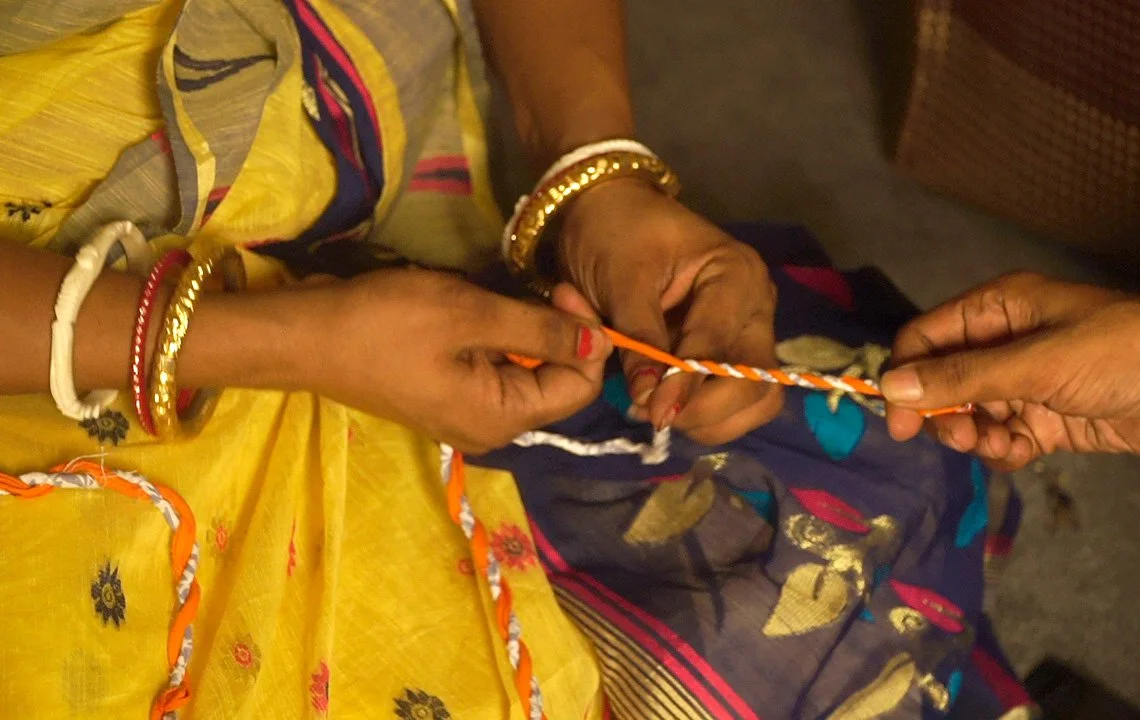Garland of Victory x TransEnd Bangladesh
Creating fair trade, zero-waste fashion with gender-diverse artisans
Location: Dhaka, Bangladesh & New York, USA
Timeline: May 2022- August 2023
Partners: Field & Forum, TransEnd Bangladesh, Garland of Victory
Beneficiaries: 10–15 hijra, trans, and gender non-conforming artisans
Focus Areas: Gender equity, fair trade labor, zero-waste fashion, upcycling, creative entrepreneurship
The Challenge
Gender-diverse communities in Dhaka face systemic discrimination, limited employment opportunities, and unsafe living conditions. Conventional fashion supply chains rarely provide dignified, fair-wage work for hijra, trans, and non-binary artisans. Heritage textiles and garment scraps are wasted, despite their cultural and aesthetic value. Garland of Victory saw the opportunity to combine fair labor, circular design, and artisan-led product development to address these social, economic, and environmental gaps.
What We Did
Designed zero-waste bags and plant hangers using upcycled sarees and textile scraps.
Provided paid, flexible work for marginalized artisans in safe, community-friendly settings.
Conducted hands-on training in tie-dye, macramé, and quality control through Dhaka-based trainer Mridul Nafiul.
Secured a workspace and supply chain to support artisans without adequate home environments.
Set fair wages at twice the national average, in consultation with local labor activists.
Promoted circular design practices, repurposing heritage textiles and reducing landfill waste.
Mentored artisans to develop entrepreneurial skills, encouraging peer-to-peer training and micro-business creation.
Documented processes to align with UN SDGs #5 (Gender Equity) & #8 (Decent Work) and share research insights.
Impact
Economic empowerment: 10–15 artisans earned fair wages while gaining skills.
Cultural preservation: Heritage textiles transformed into functional, desirable products.
Sustainable production: 100% upcycled plant hangers and naturally dyed bags.
Entrepreneurial growth: Artisans began mentoring peers and selling products locally.
Lessons Learned
Design must accommodate artisans’ social, economic, and environmental constraints.
Hands-on training and mentorship ensure consistent quality.
Fair trade and zero-waste practices can empower marginalized communities while producing beautiful products.
Quote
“Making these bags and plant hangers gives me more than income—it gives me pride in my skills and a sense that my work matters.” — TransEnd Artisan, Dhaka

